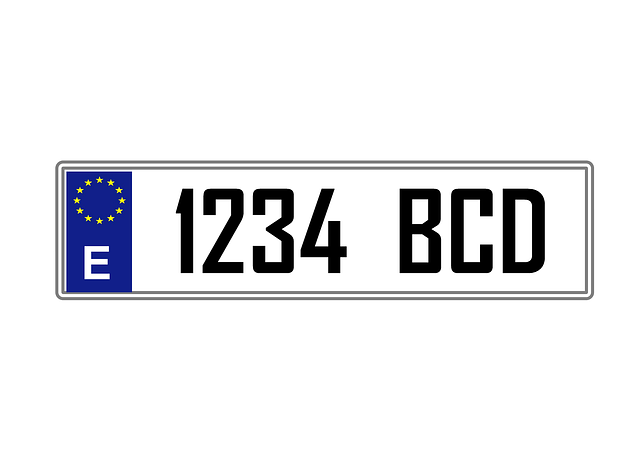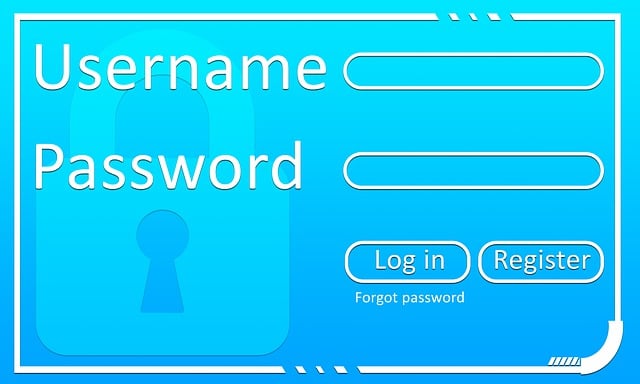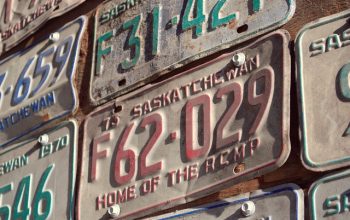The article discusses California's initiative to modernize the DMV by offering online services for license and vehicle registration renewals. Eligible residents can now conveniently renew their driver's licenses online, provided they meet specific criteria such as no name or address changes since the last renewal. Applicants must upload a valid California ID, provide their social security number, and pay the required DMV renewal fees through an online transaction. The process is supported by a detailed guide on the state's official website. For those who require an in-person visit, the California DMV provides an online appointment system for services not available online. Vehicle registration renewals can also be processed online with the necessary documents and proof of insurance. Users are encouraged to check the DMV website regularly for updates on eligibility and requirements to ensure a compliant and efficient renewal process.
As the digital age ushers in a new era of convenience and efficiency, state DMV offices nationwide are embracing online platforms to streamline services. The California Department of Motor Vehicles (DMV) has pioneered this shift by transitioning certain driver processes to an online-only format, aiming to significantly reduce the number of annual in-office visits. This initiative not only reflects a commitment to modernization but also addresses the need for more accessible and less time-intensive DMV services. The following article delves into this transformation, guiding readers through the new process for renewing driver’s licenses and vehicle registrations online, understanding associated fees, and ensuring all necessary documents are in order. Whether you’re a Californian resident or looking to stay ahead of similar changes in your state, this comprehensive guide will help you navigate the ‘new normal’ with ease.
- Navigating the New Normal: Online DMV License and Vehicle Registration Renewals
- California DMV's Digital Transformation: Eliminating In-Office Visits for Driver Processes
- Step-by-Step Guide to Renewing Your Driver's License Online in California
- Understanding DMV Renewal Fees: A Breakdown of Costs for Online Services
- The Essential Checklist and Documents Required for DMV License Renewal Online
- Determining Your Eligibility for Online DMV Renewal and Scheduling an Appointment if Needed
Navigating the New Normal: Online DMV License and Vehicle Registration Renewals

The advent of online services at DMV offices across various states, including California’s initiative, signifies a significant shift in how individuals handle DMV license renewal and vehicle registration processes. With the convenience of renewing driver’s licenses online, applicants can now complete this task from the comfort of their home, saving time and reducing the need for in-person visits. The California DMV has streamlined its online services to facilitate a smooth transition for drivers seeking to update their credentials. To ensure a hassle-free experience, prospective renewers should familiarize themselves with the DMV license renewal checklist and have all necessary DMV renewal documents ready before initiating the process. These typically include personal identification, proof of social security number, and payment for the DMV renewal fees. It’s imperative to verify one’s renewal eligibility criteria ahead of time to avoid any delays or complications. For those who require a physical presence, appointments can be scheduled at the DMV for renewal services where face-to-face assistance is needed. This transition not only enhances efficiency but also brings the DMV into the modern era, aligning with the digital expectations of today’s society and paving the way for future advancements in online government services.
California DMV's Digital Transformation: Eliminating In-Office Visits for Driver Processes

The California Department of Motor Vehicles (DMV) has embarked on a significant digital transformation initiative, which includes transitioning certain driver processes to online-only platforms. This strategic move aims to streamline operations and significantly reduce the number of in-office visits by approximately 200,000 annually. Among the processes going entirely digital are several routine tasks, such as DMV license renewal and vehicle registration renewal. By leveraging these online services, drivers can conveniently complete their renew driver’s license online without the need for physical office visits, saving time and reducing wait times for others. The renewal process is designed to be user-friendly, guiding individuals through the necessary DMV renewal documents needed and a comprehensive license renewal checklist. Drivers are advised to review the eligibility criteria for online renewal to ensure they qualify before initiating their application. The DMV’s online platform also provides clear instructions on how to complete the process, including information on the required DMV renewal fees and any additional documentation that may be necessary. This digital shift not only enhances convenience but also contributes to the efficient administration of driver’s licenses and vehicle registrations in California. Drivers are encouraged to stay informed about these changes to adapt swiftly to the new procedures, thereby maintaining compliance with state regulations and facilitating a smoother renewal experience.
Step-by-Step Guide to Renewing Your Driver's License Online in California

To initiate the DMV license renewal process in California, individuals must first verify their eligibility by checking their current license status through the official California DMV website. Eligible applicants can then proceed to the online service portal to begin their renewal. The step-by-step guide for renewing your driver’s license online includes submitting the necessary documents, which typically include a valid California driver’s license, a recent passport-style photograph that meets the DMV’s requirements, and payment of the applicable DMV renewal fees. The photograph can be uploaded directly onto the application form, along with any additional information or documentation required as per the license renewal checklist provided by the DMV.
Applicants must ensure all documents are clear and legible before submission to avoid delays in processing. After submitting the application and the required documents online, applicants will receive an electronic receipt confirming their application has been submitted successfully. It is important to keep an eye on the email associated with your DMV account for any updates or requests for additional information. Once the application and all supporting documents are reviewed and approved, the new driver’s license will be mailed to the address on file. Additionally, if your vehicle registration is due for renewal, you can also complete this process online concurrently with your license renewal, streamlining the entire process. Remember to have your current registration information handy to facilitate a smooth transaction. The California DMV’s online system is designed to guide you through each step, ensuring that you complete all required actions, including making the necessary DMV renewal fees payment, to successfully renew your driver’s license and vehicle registration without the need for an in-person DMV appointment for renewal.
Understanding DMV Renewal Fees: A Breakdown of Costs for Online Services

Navigating the process of DMV license renewal online has become a streamlined experience for many states, including California. With the advent of digital platforms, individuals can now conveniently renew their driver’s licenses and register their vehicles from the comfort of their homes. This transition not only offers convenience but also provides clarity on the associated DMV renewal fees. For those looking to renew their driver’s license online, it is imperative to be aware of the costs involved. The California DMV has outlined these fees clearly on their official website, ensuring transparency and ease for residents. The fee structure for a driver’s license renewal typically includes a base license fee and an administrative surcharge that varies depending on the age of the individual. Additionally, the online process requires adherence to a specific checklist of DMV renewal documents needed, which usually involves verifying one’s identity and residential status. Applicants must also meet certain eligibility criteria for renewal online, such as having no changes to their name or address since the last renewal, and not needing to provide an updated photo if the current license photo is recent and meets state standards. For vehicle registration renewal, similar clarity is provided regarding the necessary documents and associated fees. By accessing the DMV’s website, drivers can determine the exact fees for their vehicle registration based on factors like vehicle type, weight, and the county of residence. The online appointment system for renewal further facilitates this process by allowing individuals to schedule a visit to a DMV office if an in-person interaction is required, perhaps due to a change in photo or address, or if the individual does not qualify for online renewal. This integrated approach to DMV services ensures that drivers are well-informed and prepared to complete their renewals efficiently and cost-effectively.
The Essential Checklist and Documents Required for DMV License Renewal Online

When renewing your driver’s license or registering your vehicle online through the DMV, it is crucial to adhere to a specific checklist and have all the required documents on hand. For starters, to renew your driver’s license online, you must meet the renewal eligibility criteria set by the state, which typically includes not having any changes to your name or address, and your license isn’t expired for an extended period. You will need to provide personal identification information, a current photo, and ensure your social security number is up-to-date. The DMV renewal fees can be paid online during the transaction, so have your payment details ready. Additionally, for vehicle registration renewal, you’ll need to submit your current registration certificate, proof of insurance, and any other documents specified by your state’s DMV office, which may include a vehicle inspection report if required. Ensure that all the required information is accurately filled out and that the photos submitted are clear and meet the state’s guidelines. By following the license renewal checklist and having all the necessary DMV renewal documents needed ready beforehand, you can streamline the online renewal process and avoid any delays or complications. Remember to verify the exact requirements on your state’s DMV website, as processes and document needs may vary by location. If you require an in-person visit for reasons such as a name or address change that cannot be completed online, you can schedule a DMV appointment for renewal to ensure timely service and compliance with state regulations.
Determining Your Eligibility for Online DMV Renewal and Scheduling an Appointment if Needed

With the advent of digital transformation in government services, many states have streamlined the DMV license renewal process by offering the option to renew driver’s licenses online. To determine your eligibility for online DMV renewal, it’s crucial to review the state’s specific guidelines. Typically, these include not having any changes to your address or name, no suspensions on your driving record, and being within a certain timeframe from your current license’s expiration date. Ensure you have all the required DMV renewal documents needed, such as a valid ID, social security number, and payment method for the renewal fees. Once you confirm your eligibility through the state’s official online portal, you can proceed with the renewal process. The portal will guide you step-by-step through submitting your application, making payment of the DMV renewal fees, and completing your transaction.
Should you find that your situation requires an in-person visit, or if you prefer the certainty of face-to-face interaction, scheduling a DMV appointment for renewal is a prudent step. The California DMV, for example, allows you to schedule an appointment online for services not available through their digital platform. This ensures that you will receive personalized assistance and can complete your vehicle registration renewal or other necessary transactions efficiently. When scheduling, consider the factors that may affect your visit, such as peak times at the office, to minimize wait times. Always refer to the official DMV website for the most accurate and up-to-date information regarding eligibility criteria, required documents, and appointment scheduling.
In conclusion, the evolution of DMV services towards online platforms represents a significant stride in modernizing driver’s license and vehicle registration processes. The California DMV’s initiative to transition five simple driver processes to online-only has the potential to save approximately 200,000 in-office visits annually, marking a clear shift towards digital efficiency. For drivers seeking to renew their licenses or register their vehicles, embracing the available online resources is not only more convenient but also a crucial step in adhering to state regulations. The comprehensive guides and checklists provided for DMV license renewal online, along with transparent information on DMV renewal fees, empower individuals to navigate this transition smoothly. By understanding the eligibility criteria for online renewals and knowing which documents are required, drivers can conveniently manage their renewals without the need for physical office visits. As these services continue to improve, it is imperative for motorists to stay informed about the latest DMV renewal procedures to ensure a seamless experience.



